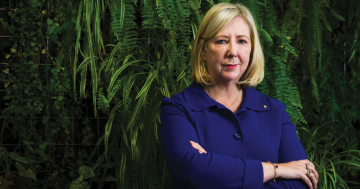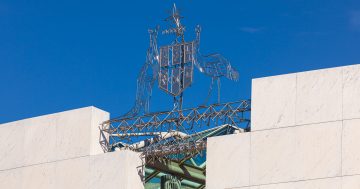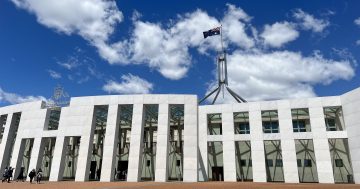 The ACT Human Rights Commission is calling on the Territory to ban the use of spit hoods on adult and child detainees in all settings.
The ACT Human Rights Commission is calling on the Territory to ban the use of spit hoods on adult and child detainees in all settings.
Spit hoods are masks made of mesh and used to stop detainees from spitting or biting police officers and others and can lead to suffocation if used incorrectly.
In an open letter written jointly by the President of the ACT Human Rights Commission, Helen Watchirs Public Advocate and Commissioner for Children and Young People, Jodie Griffiths-Cook and Commissioner for Discrimination, Health Services, Disability and Community Services, Karen Toohey said they were all seriously concerned about the use of the hoods.
“We are seriously concerned by evidence presented in Legislative Assembly Estimates hearings concerning the use of spit hoods as a restraint measure on a young person arrested by ACT Policing,” Dr Watchirs, Ms Griffiths-Cook and Ms Toohey said.
“We are also seriously concerned at the lack of data on the use of spit hoods that has been revealed by the Estimates process, particularly when we know from other jurisdictions that spit hoods are used disproportionately on Aboriginal and Torres Strait Islander peoples, including children,” they said.
“The use of spit hoods can pose a serious risk of suffocation.”
They called on the Government to take urgent action to ban the use of the restraints on adult and child detainees throughout the Territory, whether by police or in the ACT’s correctional, youth justice centres and secure mental health facilities.
“We understand that Minister Davidson is working with the Community Services Directorate to ban the use of these devices in Bimberi Youth Justice Centre,” the writers said.
“However, the issue is clearly broader than just Bimberi as recent revelations illustrate.”
They warned that the use of spit hoods could constitute cruel, inhuman and degrading treatment when used to punish or coerce, and may further compound trauma for vulnerable individuals.
“There are other effective, less restrictive and less risky measures, such as PPE and face-shields, that can minimise risk to all involved in such incidents,” Dr Watchirs, Ms Griffiths-Cook and Ms Toohey said.









